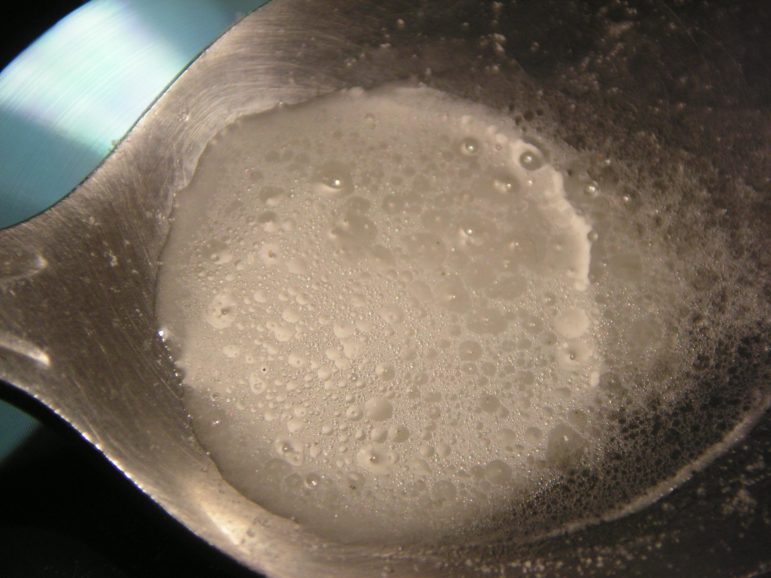
Psychonaught
Crack being cooked in a spoon.
September is National Recovery Month, and while opioid addiction and treatment imperatives will dominate headlines, the substance abuse challenges haunting black communities will continue to go unaddressed.
For example, President Trump recently declared the opioid crisis a national emergency, joining the growing ranks of legislators, policymakers, and public health officials understandably eager to tackle the deadliest drug crisis in American history by providing increased access to rehabilitation, safe havens for addicts, and making overdose reversal medication more readily available to those in need. Compare this response to the “War on Drugs,” and they couldn’t be more different.
Those of us who lived through the height of the crack epidemic in the 80’s and 90’s remember that it wasn’t met with this same compassion, but rather mass criminalization that imprisoned millions of African Americans and drove entire communities into decades of instability and violence.
For black drug users, there were no safe havens or affordable rehabilitation options. Referred to by media and law enforcement as “crack babies” and “welfare queens,” sufferers were instead treated like criminals and either locked up, or left to suffer alone. What’s worse, the inequality was codified into law with The 1986 Anti-Drug Abuse Act, which imposed far harsher mandatory minimum sentences on crack than cocaine, the drug of choice for wealthy white Americans.
Crack continues to have a stranglehold on our communities today, with African Americans 21 times more likely to use it than our white counterparts. But unlike the swift response to the opioid epidemic that’s hitting middle-class white Americans, the response to crack has fallen inexcusably short.
This doesn’t have to be a repeat of the 80’s – but it could become one, if elected officials don’t act. Initiatives like Mayor DeBlasio’s HealingNYC, and Governor Cuomo’s #CombatAddiction campaign are steps in the right direction. But more public officials must follow their lead, and build on it. By offering free screenings and referrals in black communities, and adding mental health clinics to inner city schools, local leaders can advocate for those most at risk, and make a concerted effort to remove common barriers to treatment.
The bottom-line is that we can’t endure another drug crisis that rips even more families apart, which means that our elected leaders need to take addiction as seriously in the black community as they do in the white. They can start by better understanding the many factors that lead to addiction, and work from the community-level up to address them.
Of course there’s no one-size-fits-all solution, but by meeting addiction with compassion, and removing barriers that prevent those in need from receiving treatment, we’ll at least be making a step towards healing a community long in need.
Rev. Michael Walrond is the senior pastor at First Corinthian Baptist Church.








